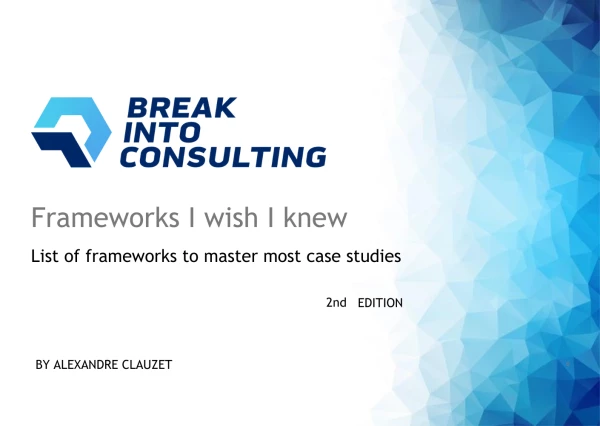Hi , Thanks in advance for your response
in some typical cases like profitability, market entry , etc ... structuring a framework is not that hard cuz you have seen and practiced it multiple times
but in some uncommon random cases like " why number of wolves in Egypt is declining" its so hard to structure a MECE framework to encompass all factors in 2 minutes under pressure of interview.
what should i do ? what is the best way of thinking i must practice to have the ability of structuring such unknown frameworks in 2 minutes?






